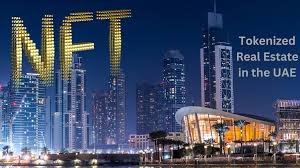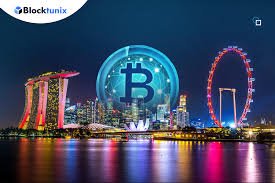In the glittering world of Dubai real estate, a quiet revolution is underway — and it’s changing the game for both seasoned investors and everyday buyers. The concept? Real estate tokenization. The recent sell-out of a Dh1.75 million tokenized villa by Dubai-based proptech startup Prypco in less than five minutes shows just how powerful and popular this new model has become.
But what exactly is real estate tokenization, and why is it being hailed as the future of property investment in the UAE and beyond?
Breaking Down Real Estate Tokenization
Real estate tokenization is the process of dividing property ownership into digital tokens that represent fractional shares of that asset. Think of it like breaking a villa into 1,000 pieces, where each piece is represented by a secure, blockchain-based token. Instead of needing millions to buy a luxury property in Dubai, an investor can now own a fraction of it with just a few hundred or thousand dirhams.

These digital tokens are stored on a blockchain — a decentralized ledger that ensures transparency, security, and accessibility. Token holders can receive returns through rental income and asset appreciation, just like traditional landlords, but without the hassle of full ownership or huge upfront costs.

Why Is Dubai Embracing Tokenization Now?

Dubai has long positioned itself as a global hub for innovation — especially in fintech, real estate, and blockchain. As the city continues to attract investors from around the world, the demand for more accessible, flexible, and transparent investment models has surged. Tokenization is the answer.
Real estate in Dubai is lucrative but often inaccessible to smaller investors. Tokenization levels the playing field. It allows anyone — from a young professional saving for the future to an international investor exploring Gulf opportunities — to get a stake in the city’s booming property market.
Prypco’s Villa Sale: A Landmark Moment
The excitement around Prypco’s recent villa sale wasn’t just hype — it was history in the making. In a matter of minutes, all the tokens representing fractional ownership of a Dh1.75 million villa were snapped up by eager investors. This wasn’t just a win for Prypco; it was a major milestone for real estate tokenization in the region.
What made this sale special wasn’t just the speed. It was the ease. Buyers registered online, selected the number of tokens they wanted, and completed the transaction without paperwork, agents, or lengthy approval processes. It felt more like shopping online than closing a real estate deal.
Who Can Invest in Tokenized Real Estate?
One of the biggest appeals of tokenization is inclusivity. Unlike traditional property investments that require significant capital, tokenized assets can be purchased with relatively small amounts. This opens the door to young investors, freelancers, expats, and anyone else who wants a slice of the real estate pie but previously couldn’t afford it.
In the past, real estate was seen as an elite club — reserved for the wealthy. Tokenization breaks down that barrier and democratizes access. It also offers new possibilities for portfolio diversification. Now, an investor can own fractions of multiple properties across different cities and types — residential, commercial, and even vacation homes.

Transparency, Flexibility, and Liquidity: A New Kind of Ownership
Real estate tokenization doesn’t just change how properties are bought; it changes how they’re experienced. Every token comes with clear records of ownership, updated in real-time via blockchain. There’s no ambiguity or guesswork, no shady contracts or under-the-table deals.
For the first time, property ownership can be transparent and traceable. It’s a level of accountability that has long been missing in parts of the global real estate world.
And then there’s liquidity. Traditionally, real estate is an illiquid asset — you can’t just sell a part of your villa tomorrow if you need cash. But with tokens, you can. Secondary markets for these tokens are emerging, allowing owners to trade them like stocks. It’s a game-changer for both investors and developers.
What Makes Prypco Stand Out?
Prypco isn’t just another startup jumping on a trend. They’ve built a user-friendly, regulation-compliant platform that bridges the gap between technology and property. Their vision is clear: make real estate investment as easy as online shopping.
Their recent success story is proof that they’re not just dreaming — they’re delivering.
By combining deep market insight with cutting-edge blockchain solutions, Prypco is providing a model that other firms are beginning to watch, and perhaps even follow. Their approach removes traditional friction points: paperwork, legal fees, slow approvals, and massive deposits. It’s streamlined, efficient, and investor-focused.
Challenges Ahead: What Needs to Be Solved
Of course, no innovation comes without hurdles. Real estate tokenization still exists in a somewhat grey regulatory area in many parts of the world. Though Dubai is at the forefront of embracing and regulating blockchain technologies, widespread adoption will require stronger legal frameworks, standardized platforms, and investor education.
Then there’s the issue of volatility. Just like cryptocurrencies, tokenized real estate is tied to blockchain markets, which can be unpredictable. However, unlike digital coins, real estate still has the anchor of tangible value — physical buildings, land, and infrastructure.
Building trust will be critical. For many people, especially those new to investment, handing over money for a “digital” piece of a house may seem confusing or risky. Education and transparency will help bridge that gap.

A Look Into the Future: Where Is This Headed?
The implications of tokenized real estate go far beyond Dubai. As platforms like Prypco succeed, they’ll likely inspire copycats, competitors, and collaborators around the world. From New York to Nairobi, property could become more fractional, digital, and democratic.
For developers, tokenization means faster sales and access to a global pool of micro-investors. For buyers, it means flexible ownership without traditional barriers. For cities, it could even mean a new way to manage urban development — inviting everyday people to participate in shaping skylines.
Dubai has once again shown its appetite for bold moves and tech-forward thinking. In a city where record-breaking buildings rise from desert sands, it’s fitting that a new kind of ownership is also taking shape — one token at a time.
Conclusion: A New Era of Real Estate Begins
Prypco’s record-breaking tokenized villa sale marks the start of something much bigger than a property deal. It signals a shift in how people think about ownership, investment, and opportunity.
Real estate, once the exclusive domain of the rich and powerful, is becoming more open, inclusive, and innovative. And while the road ahead will have its challenges, the direction is clear.
In the heart of the UAE, a digital transformation is unfolding — and it’s offering everyone a chance to own a part of the future.
Do follow UAE Stories on Instagram















